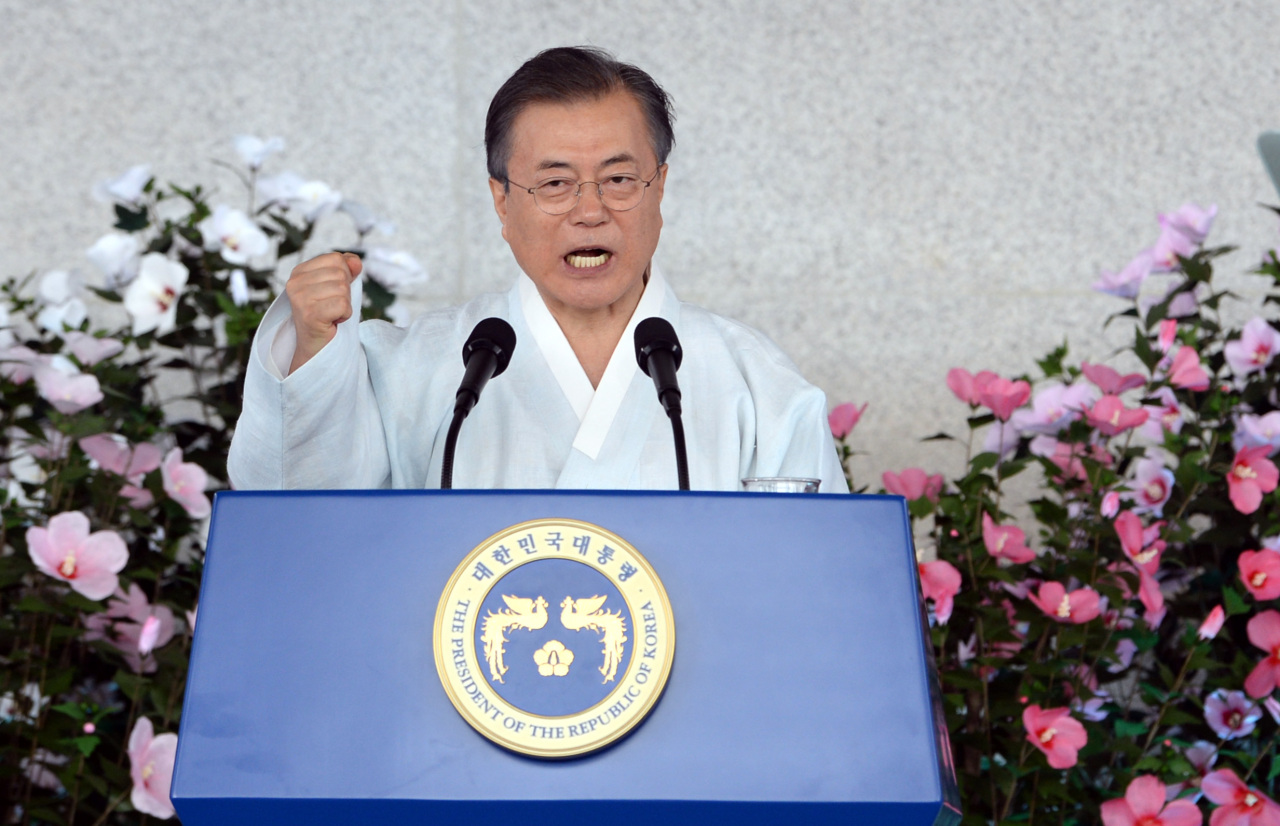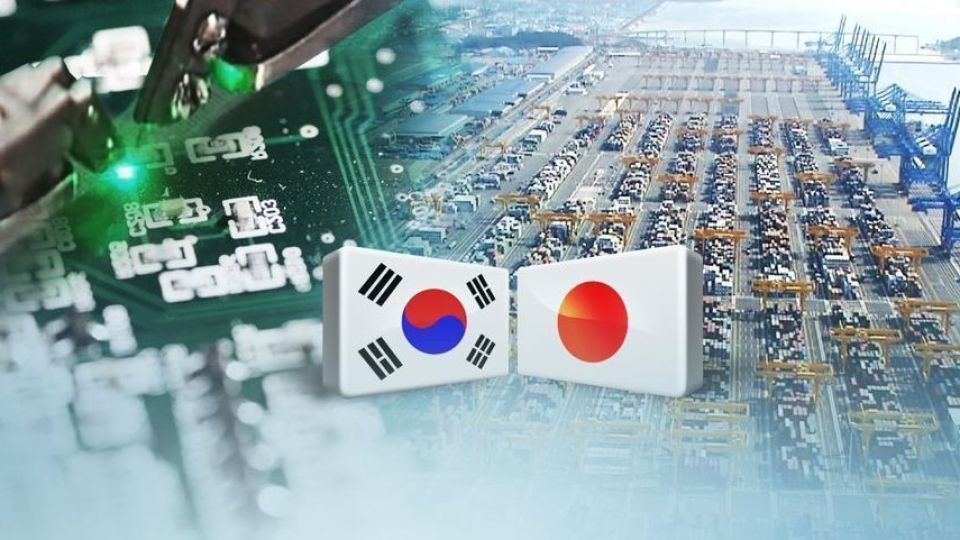August 16, 2019
Japan and South Korea have been locked in an increasingly ugly trade spat.
President Moon Jae-in said Thursday that Seoul will cooperate with Tokyo if it retracts its recent trade restrictions, stressing the importance of international cooperation and free trade.
 |
“Within the realm of the international division of labor, if any country weaponizes a sector where it has a comparative advantage, the peaceful free trade order will inevitably suffer damages,” Moon said in his Liberation Day speech.
“Better late than never. If Japan chooses the path of dialogue and cooperation, we will gladly join hands. We will strive with Japan to create an East Asia that engages in fair trade and cooperation,” Moon said.
“We have never dwelt on the past. Instead, we continued to engage in security and economic cooperation with Japan,” Moon said, going on to say that Seoul and Tokyo had in the past worked together to “practically assuage the suffering of victims from the Japanese colonial period.”
Saying he hopes the division of labor among different countries will prove to be the key to sustainable growth, Moon said Japan has achieved progress through “the division of labor on the platform of free trade order.”
In his speech, Moon also stressed the need for cooperation among different regions of the Korean Peninsula, including North Korea, and on the international stage, linking his vision for the future of his country to his New Southern Policy and New Northern Policy.
The New Southern Policy aims to strengthen ties with the ASEAN and with other nations to the south and west of the country, while the New Northern Policy is aimed at achieving similar goals with nations to the north of the peninsula.
In his speech, Moon said that while the country has made significant advances since 1945, it has yet to become “a nation that cannot be shaken,” citing a poem written in the year of liberation.
He put forward three objectives for building an unshakable nation: Uphold the free trade order and facilitate equitable cooperation in East Asia, build “a nation that serves as a bridge by taking the lead in promoting peace and prosperity on the continent and out in the ocean,” and establish a peace economy.
“We must turn our country’s geopolitical position into a strength. We must establish a clear goal to take the initiative and not be pushed around by others anymore,” Moon said, explaining his vision of South Korea as a “bridge” between the Eurasian landmass and the ocean.
“The New Northern Policy represents our aspiration to advance into the continent. We will expand the foundation for cooperation not only with China and Russia but also with Central Asia and Europe and lay a cornerstone for multilateral cooperation and security through the East Asian Railroad Community initiative.”
The East Asian Railroad Community initiative is an idea that Moon raised in his Liberation Day speech last year, saying he envisioned a community of nations connected by a rail network that would include the two Koreas as well as China and Russia.
Moon also elaborated on the role his New Southern Policy could play, saying South Korea’s relations with India and with the ASEAN nations would be upgraded to “a level equivalent to those with our major neighboring countries.” From there, he added, they could develop “a cooperative relationship for common prosperity.”
A “peace economy” is Moon’s economic vision for South Korea, and for the peninsula, based on improved inter-Korean relations following the denuclearization of North Korea.
In reiterating his vision for a “peace economy,” Moon also addressed the skepticism over its feasibility. Saying South Korea’s military capabilities outmatch those of the North, Moon stressed that the US should continue to seek dialogue with Pyongyang despite recent developments, adding that the skeptics should not “remain prisoners to ideology.”
US President Donald Trump has downplayed the significance of the North’s recent weapons tests, and said North Korean leader Kim Jong-un offered a “small apology” for the tests in a personal letter.
Going on to say that he would “solidify denuclearization and (establish a) peace regime on the Korean Peninsula” during his term, Moon set out bold goals for inter-Korean relations.
“We will advance dialogue and cooperation so that the seeds sown together with North Korea in the spring of peace will grow into trees of prosperity,” Moon said.
“I pledge to solidify the foundation so that we can successfully host the joint 2032 Seoul-Pyongyang Olympics and stand tall in the world as one Korea by achieving peace and unification by 2045, which will mark the 100th anniversary of liberation.”


